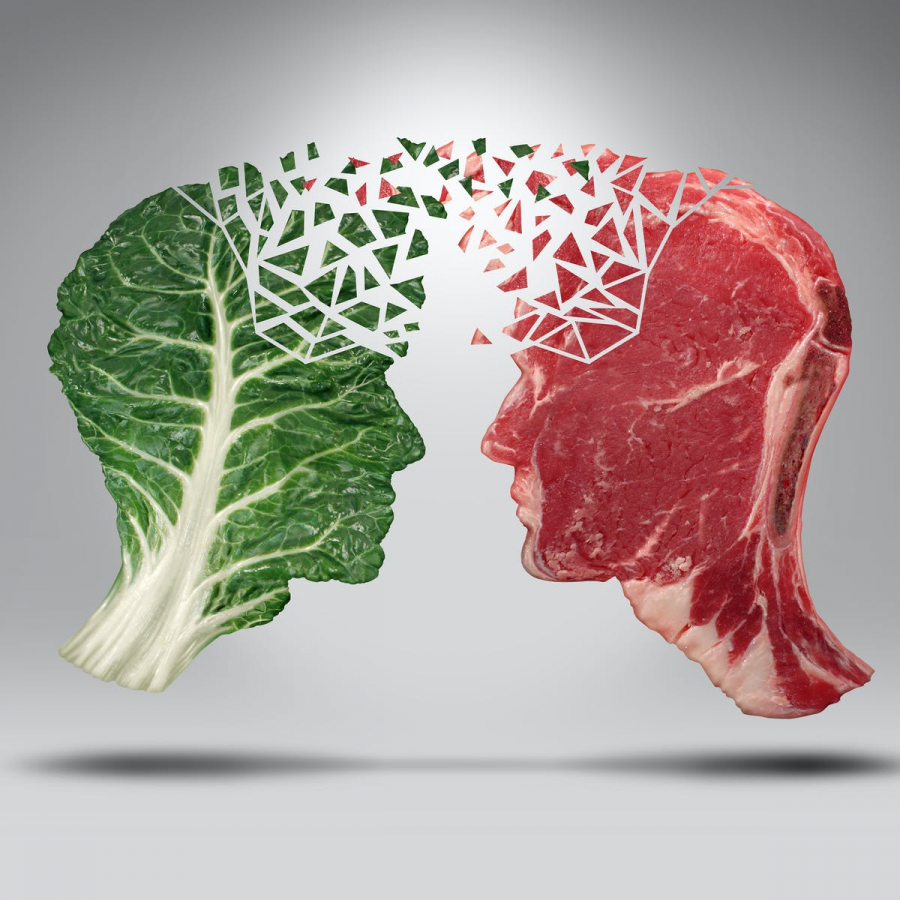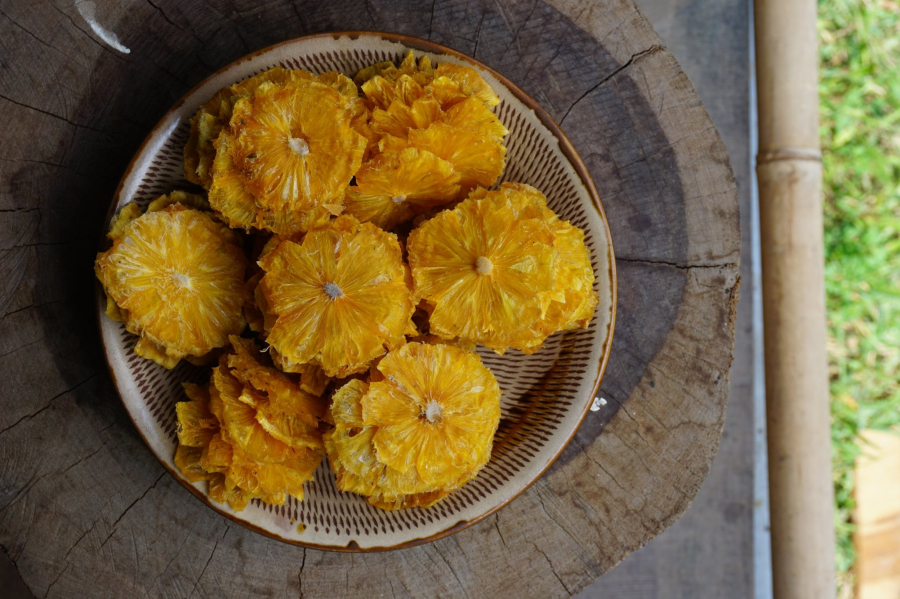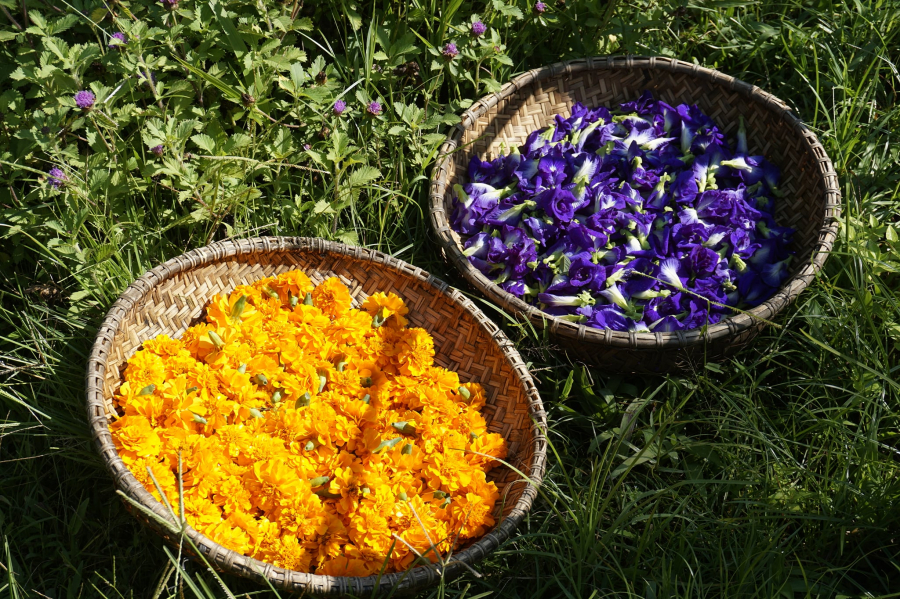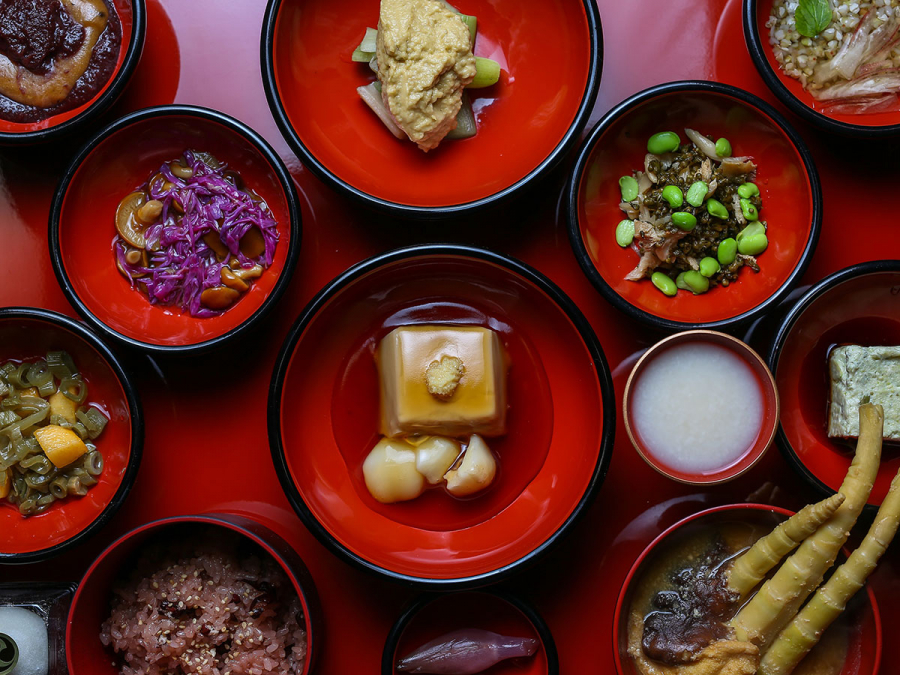Vegetarianism in the Modern World
Nowadays, when vegetarianism is no longer just a trend or movement like it was about five years ago, having a clear perspective on a vegetarian lifestyle is essential. A "green" lifestyle and environmental protection are driving the integration of vegan experiences into the daily lives of families. Most restaurants now offer vegan meals, and all supermarkets sell a significant number of vegan products to suit consumer preferences. Many young families are also becoming more accustomed to not including meat in their daily menus. The world is gradually accepting that reducing animal products from the diet is becoming a symbol of the new era – where a balanced, healthy lifestyle reigns supreme.

A culture of "green" living and environmental protection is one of the factors driving vegan experiences into the daily lives of many families. (Image: Internet)
However, becoming a vegan is not as simple as many slogans or articles easily found online suggest. Obtaining sufficient nutrients and vitamins (especially B12) from a vegan diet is much more difficult than with other conventional diets. Finding balance in a vegan diet therefore requires significant effort, time, energy, and sometimes a solid financial foundation. Furthermore, finding the time to plan and ensure you are absorbing all the nutrients your body needs is a significant challenge in today's modern world.
But nutritional deficiencies aren't the only concern for the growth of the vegan movement. The aggression of a few small groups or individuals is gradually creating a backlash, a terrible advertisement for those wanting to learn about veganism. It's difficult to find an objective article about the vegan movement or a simple experience-sharing piece without reading negative, mocking comments from both sides. This disagreement stems from the fact that very few people truly understand vegan living or practice it in their daily lives.

The aggression of a few small groups or individuals gradually backfired, creating a terrible advertisement for those interested in veganism. (Image: Internet)
Does being a vegetarian equate to living a "green" lifestyle?
Vegetarianism is not simply a manifestation of a "green lifestyle" as many mistakenly believe. The production and consumption of foods like butter and soy products (a staple in many vegetarian diets) are severely damaging the environment and generating far greater carbon emissions than the animal-based food industry. According to the WWF: "Without proper safeguards, the soybean industry will cause widespread deforestation, along with the displacement of smallholder farmers and indigenous peoples globally." In fact, the carbon emissions from soybean production, combined with emissions from transportation and processing of soybean products, have far more detrimental effects on the Earth than many leading heavy industries. Furthermore, extreme vegetarians and their vegetarian diets that cater to animals and young children have a much higher level of negative impact than those with other dietary restrictions.
Therefore, perhaps, in order to find a suitable way to positively impact people's diets in particular and the well-being of the planet in general, we must start on a smaller scale, more deeply and openly. The only way to secure the support of a large segment of the population is to take a gentle approach, making appropriate changes to diets, rather than condemning others for having diets that differ from our own.

Photo: YenduFarm
To avoid having to run away from vegetarianism.
In 2019, a report released by the EAT Foundation highlighted the importance of changing our diets. Professor Walter Willett stated: “The transition to a healthier diet by 2050 will require significant dietary changes. Global consumption of fruits, vegetables, nuts, and legumes will have to double; and consumption of foods like red meat and sugar will have to decrease by more than 50%. […] A diet rich in plant-based foods and low in animal-based foods offers health and community benefits and will be the first steps toward improving the world’s environmental problems.”
One thing the report really emphasizes is the need to focus on health and nutrition through vegetarian diets, but at the same time, this must be accompanied by increased sustainability in the new menu structure. To accurately inform people about the nutrients they need, a complete overhaul of our education system will be necessary. Health and sustainability must coexist – if we want to make any major and lasting changes on a global scale.

Photo: YenduFarm
Furthermore, the prices of nutritious, naturally sourced, and healthy foods must be lowered to make them more accessible to the majority. This can be easily seen in Western countries, where a bottle of plain water costs twice as much as a bottle of soda, and a box of salad costs as much as two chicken wings. It's difficult for low-income earners to think about their health when choosing healthy products means accepting that their families might go hungry. Doing these things right will give us a better chance of convincing more people that a vegan lifestyle is the right and best path humanity should take in the future.
Changing one's diet, gradually reducing meat and animal products from daily meals, is a significant step forward for many. It's the only way for the majority to participate without feeling pressured into adopting the unfamiliar vegan lifestyle. Change can't happen overnight; for many, completely eliminating meat is impossible, but to avoid diseases caused by animal products, they might be more open to a healthier diet.

Changing one's diet and gradually reducing the amount of meat and animal products from their daily diet is also a big step forward for many people. (Photo: YenduFarm)
Many human industries around the world are built on dairy or meat production. Completely shutting down these sectors would create mass unemployment and severely damage the economy. Looking at the numbers, millions of families and billions of people depend on the very industries that strict vegans are trying to dismantle. We cannot threaten these livelihoods if we want to attract the masses to a movement that benefits human health and the future. To capture people's attention, it's far more effective to start with suggestions, such as one or two vegan meals a week. Small changes can become part of a new chapter in human history.
A different lifestyle. A different solution.
In many ancient religions around the world, the first exercises a follower needs to focus on are practicing a vegan lifestyle, thereby transforming the body and mind to prepare for the journey of discovering deeper values in life. Living vegan, therefore, is also a synthesis of many things: science, worldview, and most importantly, a choice for individuals to find themselves amidst a chaotic and turbulent world.
It's difficult to grasp the immense significance of this seemingly simple choice. Truly living by one's beliefs is challenging in any context, but it becomes easier if one actively practices it daily. From basic needs to improve the world and oneself, vegetarianism can gradually become a bridge connecting individuals to themselves and their emotions. Living a vegan lifestyle is a choice where individuals learn to cultivate and nurture a positive energy system through hope, practice, and belief.


 VI
VI EN
EN




































